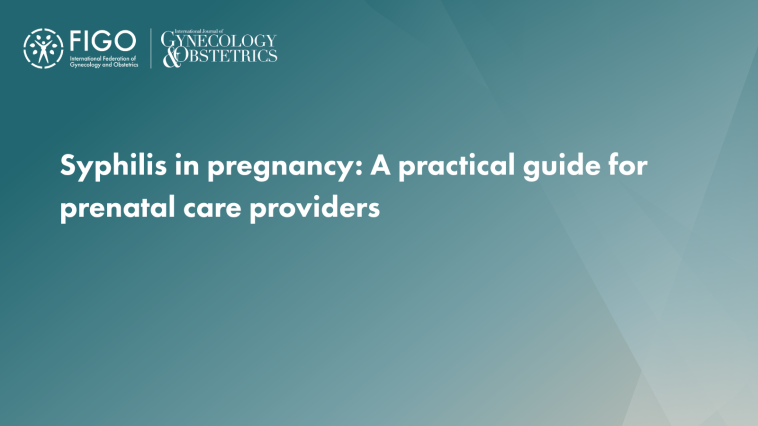FIGO issues new guidelines to combat rising rates of syphilis in pregnancy

Developed by the FIGO Committee on Infections During Pregnancy, FIGO has released new evidence-based guidance aimed at tackling the growing global threat of syphilis during pregnancy.
Syphilis remains a persistent cause of preventable stillbirth, neonatal death and serious health complications worldwide. Despite the World Health Organization’s (WHO) 2007 call for the elimination of congenital syphilis, recent years have seen a resurgence of infections among pregnant women in many regions – including the Americas, Africa and parts of Europe – leading to alarming increases in congenital syphilis cases.
The new FIGO guidelines emphasise early universal screening, ideally at the first prenatal visit, with follow-up testing later in pregnancy and at delivery in countries that have not met WHO elimination targets. FIGO also highlights the critical need for timely treatment with benzathine penicillin, the only proven safe and effective therapy for preventing transmission to the foetus.
"The guidelines advocate for universal early screening, strengthened health systems to ensure access to free and timely prenatal car, and the integration of effective follow-up strategies. This resource will empower prenatal care providers to proactively address this persistent public health challenge, ultimately contributing to the elimination of congenital syphilis worldwide." - Dr Isabelle Boucoiran, corresponding author
The guidance calls for increased efforts to screen and treat sexual partners, preventing reinfection and broader community transmission. It also addresses challenges such as global shortages of benzathine penicillin and the need for healthcare worker training to improve early detection and management of syphilis in pregnancy.
FIGO urges countries to prioritise this public health issue through comprehensive strategies that combine universal testing, timely treatment and robust health system support, ultimately working towards the global elimination of congenital syphilis.